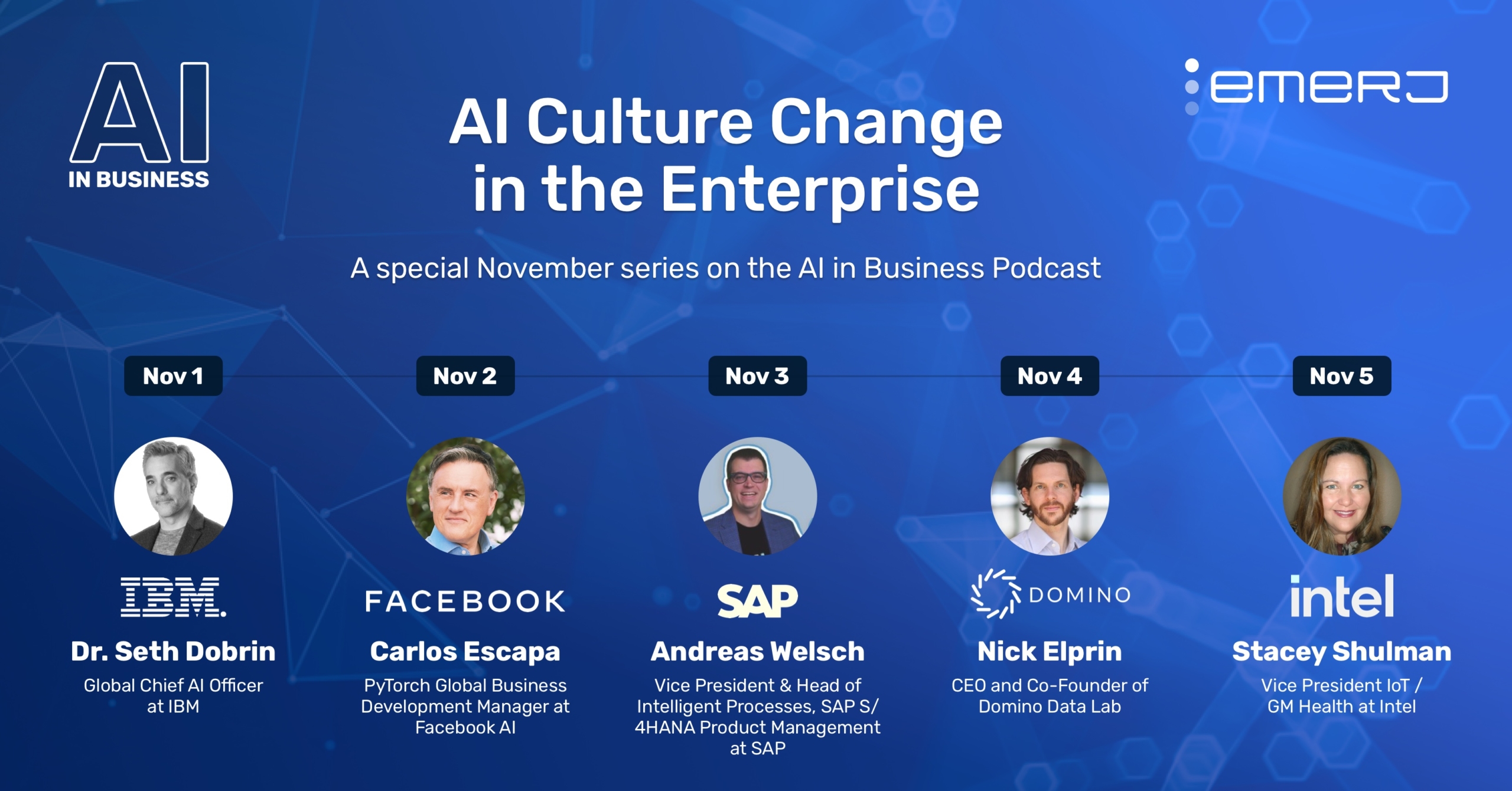
As far back as 2018 when we surveyed over forty banking industry leaders to discover the biggest issues with AI adoption, enterprise culture was already emerging as top of mind. Since then, we have found similar frustrations around enterprise culture in every industry. More than lack of data science talent, lack of appropriate culture serves as the largest and most consistent barrier to adoption.
For cultures that have spent so long navigating IT deployments, it’s challenging to switch gears and adopt the changes they need to integrate AI.
AI is not IT. AI is not buying a set of tools for some kind of plug-and-play deployment. It’s an entirely new way to work with data, infrastructure, and teams – to open up an entirely new set of capabilities from the ground up. AI means working under a new set of expectations.
Where IT is often predictable, AI sets new predictions. To go into AI unprepared means ignoring these differences. It means setting poor expectations, disappointing leadership, and facing the shut-down of AI projects and initiatives down the road.
But, how—concretely—are AI and IT so different? It comes down to these attributes:
- Time-to-deliverable
- Product capability
- Current in-house competence
- Monetary resources required
- Role of subject-matter experts
- Data requirements
- Depth of integration
- Strategic value
In the first week of November for the AI in Business podcast, we met with a series of AI luminaries and discussed how to make AI part of a company’s culture and DNA and how to arrive—faster—at AI ROI. We distilled actionable insights from true AI experts.
Every episode centers on one unifying theme: Culture Change for AI Adoption in the Enterprise.
If you’re not already subscribed to The AI in Business Podcast, be sure to subscribe now on your favorite podcast platforms:
We’ll be running more series like this in the future and will continue to bring on high-level guests all the way up to global chief AI officers at companies as large as IBM. Be sure to subscribe to the podcast so you receive the latest updates.
For this article and through this series of podcasts, we will highlight salient points and take-home messages from each of these five podcasts, which will help you move the needle on AI culture and achieve AI ROI faster in your enterprise. I’m proud of the amazing guests we lined up, and I hope you’ll enjoy listening to these recordings of each session!
AI Culture Change – Advice from the Experts
EPISODE 1 – What “Building an AI Culture” Really Involves
Guest: Seth Dobrin, Ph.D. – Global Chief AI Officer, IBM
This series kicks off with IBM‘s Global Chief AI Officer Seth Dobrin, Ph.D., who explores the “levers” that he’s seen to be effective in improving AI culture.
When it comes to fostering AI adoption and building a culture of innovation, leaders need to find internal champions who have the enthusiasm for applying AI and empower them to have their own ideas and discover fruitful AI opportunities. A top-down approach that mandates AI projects, names project leaders, and then presses “play” is, in Seth’s eyes, a very poor approach to fostering AI change.
Encouraging innovation requires channeling enthusiasm. Therefore, finding your most enthusiastic leaders and supporting them in finding the right use cases is a strategy more leaders should deploy.
EPISODE 2 – How Culture Separates Top-Performing AI Teams
Guest: Carlos Escapa – PyTorch Global Business Development Manager, Facebook
Carlos Escapa of Facebook breaks down some of the ways legacy enterprises can learn from AI-first startups.
Carlos elaborates on how cultural experimentation and the ability to learn quickly support the best AI companies in converting AI into value. He reminds us that AI is like R&D, not IT.
Today’s companies must be actively learning and upgrading their skills in order to get into this new norm of iteration where business is headed. Without that, they’re not putting themselves in a good place culturally and setting themselves up for AI success.
EPISODE 3 – Lifting the “AI Fluency” of Enterprise Teams at Scale
Guest: Andreas Welsch – Vice President & Head of Intelligent Processes, SAP
SAP‘s Head of Intelligent Processes, Andreas Welsch, discusses specific strategies that SAP has used to improve its own “AI fluency” and make culture change possible.
Andreas talks about how SAP built internal capability within their organization. By building an internal team, SAP shares AI expertise within their enterprise. They chose product leaders who became AI ambassadors and who came together to share experiences. Not just Zoom meets, SAP invested in value-add events that featured speakers and offered opportunities for SAP personnel to level up their skills together. SAP’s approach to internal AI fluency-building could serve as a template for other enterprise firms.
EPISODE 4 – The Stages of Enterprise AI Maturity
Guest: Nick Elprin – CEO, Domino Data Lab
Nick Elprin, CEO of Domino Data Lab, explores the components of AI maturity (culture among them), and how enterprise leaders can improve theirs.
Understanding the AI maturity level of your organization helps identify where you need to grow and where you should direct future investment. In this episode, Nick describes how organizations move from data-driven to model-driven decision-making. He discusses how they progress from business intelligence that focuses on dashboards and analytics that evaluate backward-looking data to forward-looking, predictive models that automate decisions.
EPISODE 5 – What It Takes to Make AI Part of the Lifeblood of a Company
Guest: Stacey Shulman – Vice President Internet of Things Group / GM Health, Life Sciences and Emerging Technologies, Intel
Stacey Shulman of Intel Corporation shares her take on AI maturity, and how companies can assess their AI readiness and areas of improvement.
AI maturity won’t mean using AI to find issues you didn’t know about. It’s about employing AI in finding new ways to address the challenges you are already trying to solve. AI is about getting crisp about which problems are priorities for you and the business reasons for solving them. From there, companies can take on their new AI toolset, putting their talent and backbone infrastructure to work in sourcing ROI from AI.
AI is never a finite cost. It’s an ongoing investment that requires commitment and cultural change.










